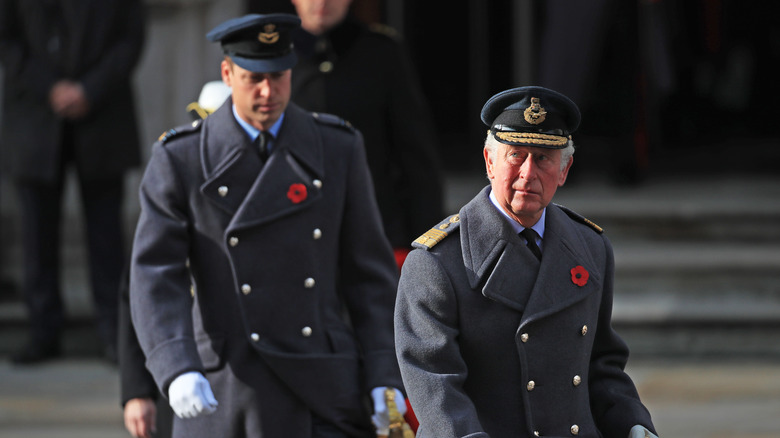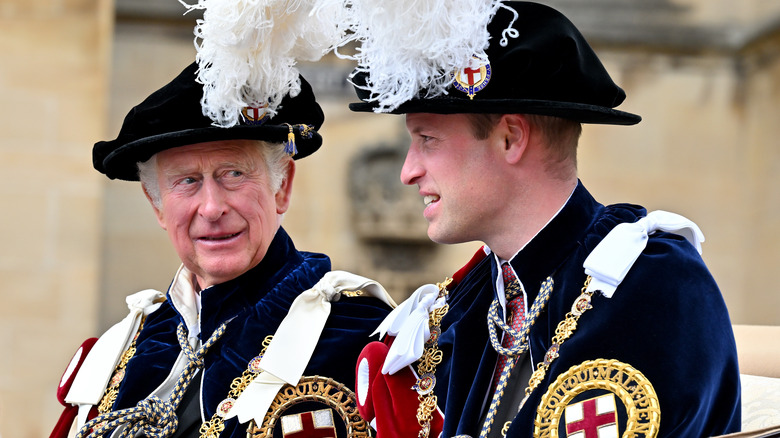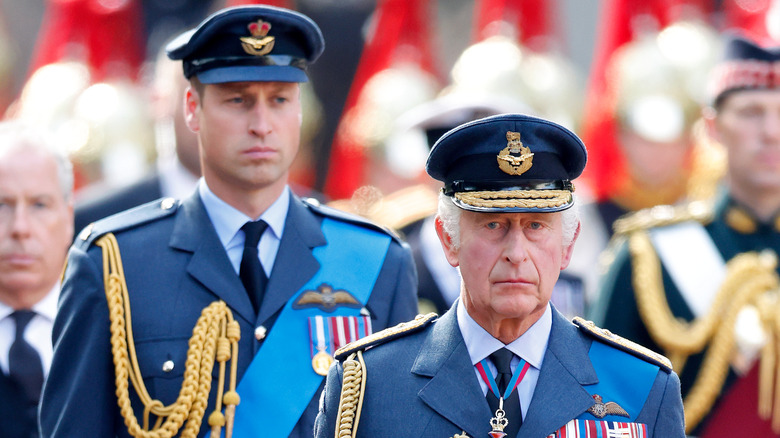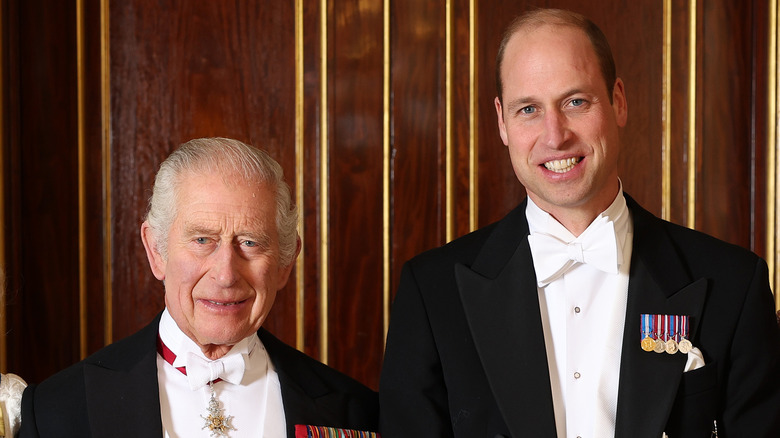Royal Expert Tells Us King Charles & Prince William's Likeness Holds Them Back From Being United
King Charles III and William, Prince of Wales have a unique relationship unlike most father-son bonds; they both grew up knowing that they would one day be sovereign of the United Kingdom and multiple Commonwealth countries. While there have been calls from some for the king to abdicate, King Charles is staying on the throne — at least, for now. As such, he is the one who wields the most power and influence. But that doesn't mean that Prince William is just sitting back and letting his father take the lead on everything; he has reportedly been wanting to get more involved in the monarchy and shaping how it moves forward.
The two men have their own style of doing things, and there's some speculation that Charles and William are in a behind-the-scenes power struggle. The List exclusively spoke with royal commentator Amanda Matta about King Charles and his eldest son to get her opinion on any potential conflict between them regarding the monarchy's future. According to Matta, their similarities could play a part in keeping them from being in lockstep over the royal family plan.
"Like many fathers and sons, I think William and Charles might be more alike than they're willing to admit!" Matta told us. "Just as Charles did for his decades-long tenure as Prince of Wales, William now shows similar signs of wanting more influence over Palace decision-making — and the direction the Monarchy, as a whole, takes into the future."
Prince William and King Charles have different ideas about the monarchy's future
King Charles III has been paring down on the pomp and circumstance at royal events such as his coronation, though there was admittedly still plenty of royal grandeur. It's a fine line between continuing tradition and adapting the royal institution to today's changing times. That's one of the things that Amanda Matta said the two men have in common: "Charles and William actually do share quite a bit of common ground, I think, especially when it comes to wanting to modernize the monarchy while still retaining a sense of continuity and tradition." However, it's their approaches to that evolution that differ, and it's there that the differences between the two seem the most prominent and potentially in conflict.
Matta broke down one example for The List: "Prince William is seeking specifically to modernize the way that royals approach their patronages and charity work. He famously announced last year that he will not take on hundreds of causes and merely serve as a figurehead, but instead try to 'actually bring change and bring people to the table who can do the change if I can't.'" One such example of dynamic change includes the prince's plan to convert some Duchy of Cornwall land to public housing. That's land that King Charles had controlled since he was 21.
King Charles is the one in charge
In comparison, King Charles III is remaining what one might call a figurehead for hundreds of patronages, and he still seems set in his ways in some respects. While the king passed on the title of Prince of Wales to his eldest son as one of his first public acts as monarch, Amanda Matta noted that he's still in control of some patronages which might be better served by the next generation. It could be an issue of control for King Charles, or it could be him not wanting to put too much on Prince William's to-do list. If Prince William is going to be more hands-on when it comes to his royal charitable work, adding many more patronages could be overwhelming.
Given their differences, and the fact that King Charles is unquestionably the one in charge as the sovereign, Prince William seems to have figured out a way of working with and for his father. "On the whole, though, I think he recognizes that his father will largely call the shots," Matta said, "and we've recently seen a 'divide and conquer' approach from the Royals as a result."
Even with shared passions, King Charles and Prince William work separately
Even when they have causes in common, they aren't always coordinating their efforts to create a united front, which Amanda Matta sees as a missed opportunity. For example, King Charles seems to have inspired Prince William's concern for environmental causes, but they have their own way of supporting them. For example, Prince William founded the Earthshot Prize, which the king has stayed out of.
"They could do an immense amount of good in those areas by joining forces — and give the public a glimpse of a united king and heir in the process," Matta explained. "The current problem is that they each want to leave their own personal stamps on those issues; there has been no coordinated effort between father and son to tackle them together. They could potentially bring greater benefit to all of their chosen causes as a united team, but instead choose to pursue different solutions over which they can each have ownership."
Perhaps it's a way for Prince William to establish himself as his own person, and it seems like King Charles is letting him do so. Whether that is the most effective way forward, however, remains to be seen.



